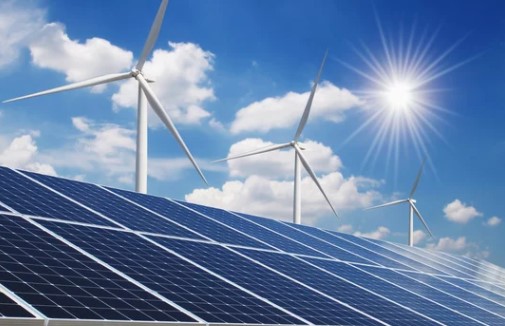India has already achieved emission reduction of 28% over 2005 levels, against the target of 35% by 2030 committed in its NDC (Nationally determined contributions).
Further, the Indian Power Sector to have achieved the coveted milestone of 100 GW of installed Renewable Energy Capacity.
The emission reduction accomplishment makes India among one of the few countries globally which has kept to its Paris Climate Change (COP21) commitments along with an exponential increase in renewable energy capacity.
Emission reduction of 28% over 2005 levels, against the target of 35% by 2030 already achieved by India
Considering the pace of development in the energy sector, India is determined to not only achieve, but to exceed its NDC commitments well within the committed time frame.
This was stated by Union Minister of Power and New & Renewable Energy, and President of International Solar Alliance, Shri RK Singh in his keynote address at the ‘INDIA-ISA Energy Transition Dialogue 2021’ organized by the International Solar Alliance (ISA) and the Union Ministry of New and Renewable Energy (MNRE), here yesterday.
In this inaugural session, the opening remarks were given by Shri Indu Shekhar Chaturvedi, Secretary, MNRE and the context setting was done by Dr. Ajay Mathur, Director General, International Solar Alliance.
Shri R.K Singh underlined that from time-to-time, the Government of India has enacted favorable polices and regulations to boost the clean energy sector.
India has been aggressively pushing for energy efficiency improvements for the past two decades through a combination of innovative market mechanisms and business models, institutional strengthening and capacity building, as well as demand creation measures.
Shri Singh further added that the key is to allow the regulatory and policy support to keep the sector afloat till the supply-side strengthens, technology develops, and competitive market takes root resulting in a fall in prices, and the industry becomes self-sustainable.
India taking the lead to support a global energy transition that is just, inclusive, and equitable
He said that it is anticipated that by 2050, 80-85% of India’s overall power capacity will come from renewables. India has already touched 200 GW of peak demand.
The demand had crossed what it was during pre-COVID time and it is expected that electricity demand will continue to rise. This gives us the space for adding more renewables capacity, but it will call for power system flexibility and introduction of various storage technologies.






